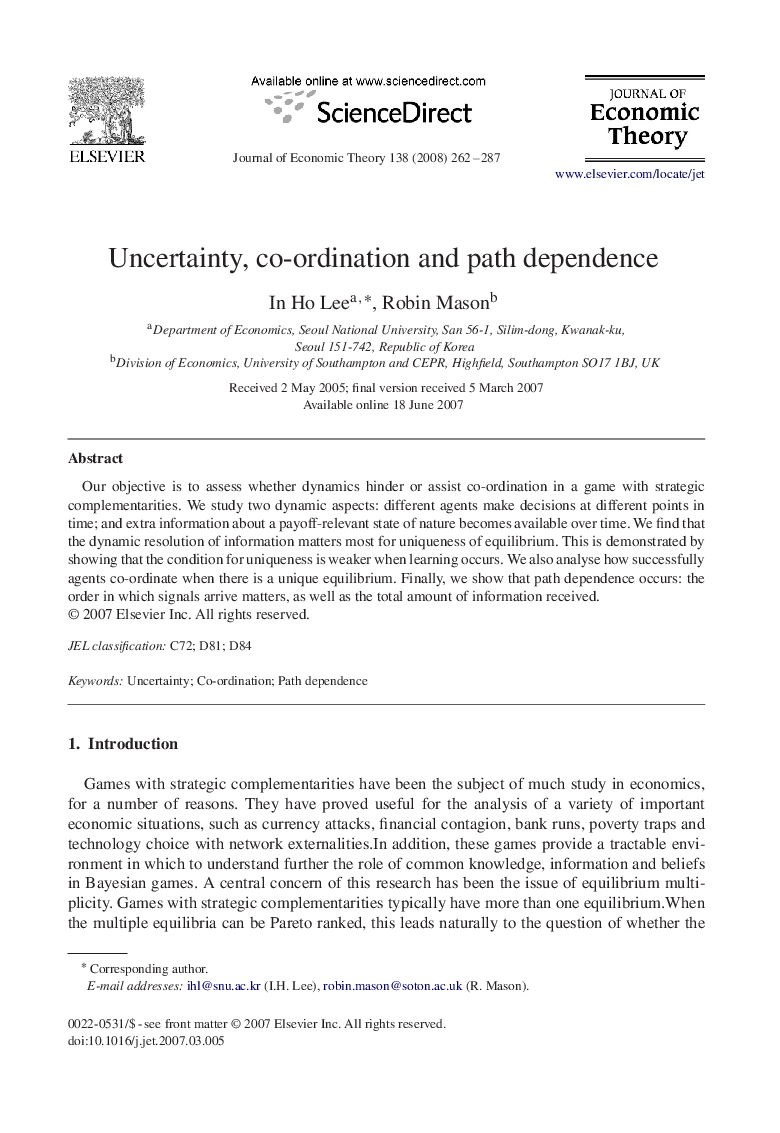| Article ID | Journal | Published Year | Pages | File Type |
|---|---|---|---|---|
| 957633 | Journal of Economic Theory | 2008 | 26 Pages |
Abstract
Our objective is to assess whether dynamics hinder or assist co-ordination in a game with strategic complementarities. We study two dynamic aspects: different agents make decisions at different points in time; and extra information about a payoff-relevant state of nature becomes available over time. We find that the dynamic resolution of information matters most for uniqueness of equilibrium. This is demonstrated by showing that the condition for uniqueness is weaker when learning occurs. We also analyse how successfully agents co-ordinate when there is a unique equilibrium. Finally, we show that path dependence occurs: the order in which signals arrive matters, as well as the total amount of information received.
Keywords
Related Topics
Social Sciences and Humanities
Economics, Econometrics and Finance
Economics and Econometrics
Authors
In Ho Lee, Robin Mason,
